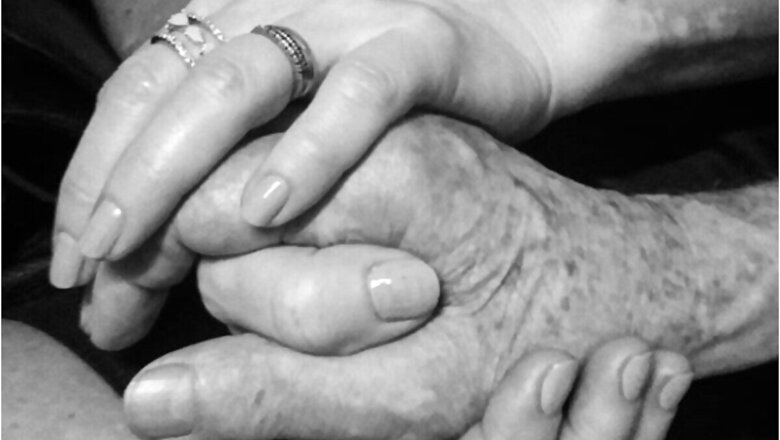
views
September 21 is observed as World Alzheimer’s day every year. A type of dementia, Alzheimer’s can affect or alter a person’s thinking, memory, or behaviour. Gradually, the symptoms become a hindrance in the patient’s daily life and regular needs.
Here’s everything you need to know about the disease:
Symptoms and effects
With a global number as high as 44 million, the accounted number of Alzheimer’s patients in India is about 4 million, according to alz.org. This neurodegenerative disease appears mostly in old age; however, it shouldn’t be confused with old-age related forgetfulness. While many older people may have some memory-related issues (Dementia is used a common umbrella for all memory-related diseases), it may not be Alzheimer’s. Generally, late-onset Alzheimer’s is common in older people (65+), early-onset can be as early as the mid 30s to late 40s.
It accounts for 70-80% of all known dementia cases. Alzheimer’s is a gradual progressing disease i.e. there are various stages to its propagation. Pre-dementia is a stage where normal forgetfulness occurs, like forgetting one’s wallets or keys, or other simple daily tasks. It’s mostly associated with short term memory; the patient would still identify their belongings and recognise people they know.
With early and moderate stages, it gradually progresses from short term memory impairment to more complex dementia. Episodic and semantic memory is altered. A person may have difficulty recalling some incident from past life or even forget some basic vocabulary.
In advanced stages, which is generally above 65 years of age or even later, everyday things become near impossible. They may not be able to hold conversations or even remember who or where they are.
Treatment
There is, unfortunately, no cure for Alzheimer’s. Once the disease is advanced, the affected person needs constant care. A good support system is the only care available for Alzheimer’s as the person themselves is unable to support their daily needs.
A research concluded that around 40% of the patients inherited a mutated gene from one of the parents. Much like treatment, there is no single diagnostic tool to confirm the disease. However, if any of your parents had/have Alzheimer’s, you can get an analysis based on a variety of pathological and psychological tests to assess the risk of you getting the disease.




















Comments
0 comment